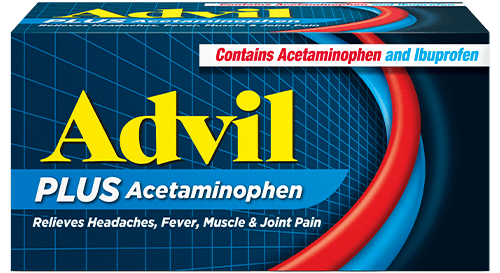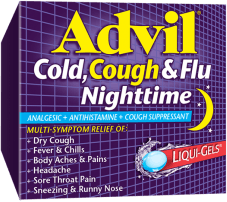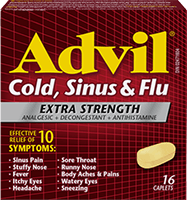Nighttime Cold & Flu Symptoms
Learn more about why nighttime is worse and how to treat your symptoms.
Your head aches, your nose is clogged, and your throat is sore. All you want to do is crawl into bed and sleep. But that's the problem—you can't sleep, because your symptoms are making you feel miserable. Cold and the flu symptoms tend to get worse at night, and that can interfere with getting the sleep your body needs to help it heal.
Why is Nighttime Worse?
The reason why some symptoms worsen at night is unclear, but in the case of coughing several causes have been identified.
- Body position: When you are lying down, it can be harder for your body to clear mucus from your airways. Mucus can build up in your throat, triggering your body to cough. When you are awake during the day, you move around and swallow frequently, which reduces the nasal drainage. At night when you are less active, nasal congestion can increase.
- Dry air: Air conditioning and cooling fans in summer and heating in winter can dry the air, making throat irritation and coughing worse. A humidifier may help put moisture in the air, but you have to take care of the unit. If you don’t clean it properly, you can recycle germs back into the air you breathe, worsening a cough, cold, or other respiratory infection. Using sterile water in the humidifier can help keep the air clean.
Treating Your Symptoms
The types of medicines that relieve cold and flu symptoms include:
- Analgesics, which relieve pain.
- Antihistamines, which relieve runny nose and sneezing.
- Cough suppressants (antitussives), which reduce coughing.
- Decongestants, which help relieve nasal congestion.
Advil Cold, Cough & Flu Nighttime can provide fast and effective relief of:
- Body aches and pains
- Dry cough
- Fever and chills
- Headache
- Runny nose
- Sneezing
- Sore throat pain
Advil Cold, Sinus & Flu Extra Strength provides effective relief 10 symptoms in one pill:
- Body aches and pains
- Fever
- Headache
- Itchy eyes
- Runny nose
- Sinus pain
- Sneezing
- Sore throat
- Stuffy nose
- Watery eyes
The best strategy is to start treating your cold or flu as soon as you first notice the symptoms. The earlier you start treating your symptoms, the sooner you will begin to feel better. Lack of sleep reduces your immunity, making it harder to recover and making you more susceptible to other diseases. Not treating your cold will mean that you will continue to cough and sneeze, making it more likely that you will be able to spread the virus to other people when you cough, sneeze, or even talk.
While colds and the flu usually clear up on their own, in a small number of cases the virus can lead to more serious complications such as sinus infections, ear infections, and pneumonia, and they can make other health problems, such as asthma and bronchitis, worse. If your symptoms last more than a couple of weeks, you should see a doctor.
Be sure this product is right for you. Always read and follow the label. This information is provided for informational purposes only and is not intended as a substitute of any kind for professional medical advice, diagnosis or treatment of a qualified professional as required. Speak to your healthcare professional before making any changes to your lifestyle, or beginning or discontinuing any course of treatment. Never disregard professional medical advice or delay in seeking it because of something you have read on this site.





